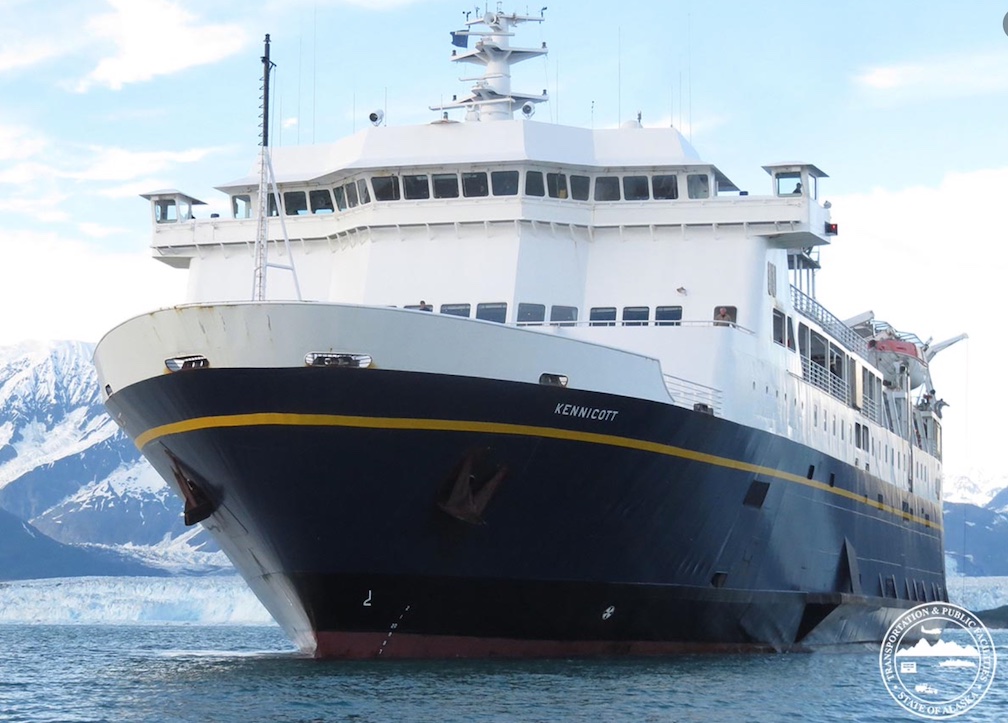Early Friday morning the M/V Kennicott collided with the M/V Hubbard while docking in Ketchikan. Alaska Marine Highway System personnel are conducting a thorough damage assessment, and initial reports describe minimal damage to the Hubbard, while the Kennicott suffered a damaged sponson and window.
The U.S. Coast Guard was notified of the event, which occurred at 4:25 am, and an internal investigation is underway. Neither ship is currently in revenue service, and no crew members were injured during the incident, Alaska Department of Transportation reports.
The Kennicott just entered its annual overhaul period, and the Hubbard is scheduled to begin a capital improvement project to construct crew quarters during 2022. AMHS does not anticipate the damage from today’s incident will impact project timelines or return to service dates for either vessel.
The Kennicott is the workhorse of the Alaska Marine Highway and just delivered its last passengers before its Jan. 14 overhaul. It will be out of service until at least April, leaving the shrinking ferry system with one less asset to move people, cars, fish, and goods around coastal communities.
